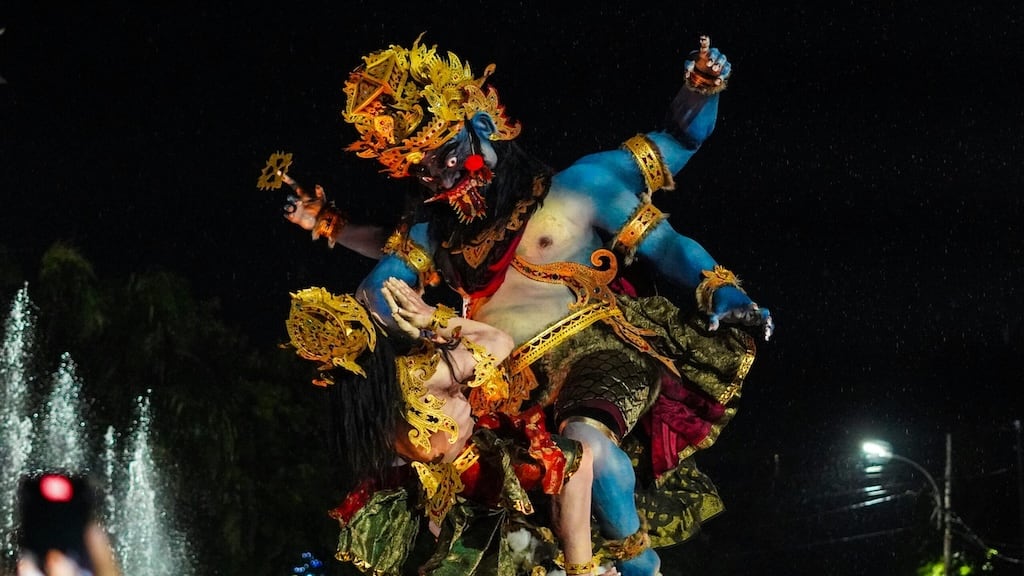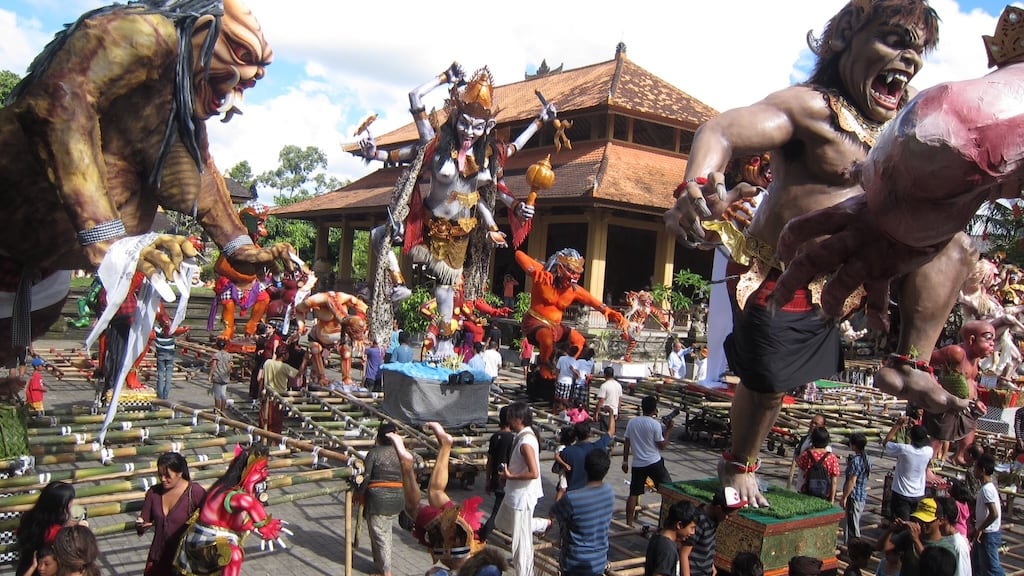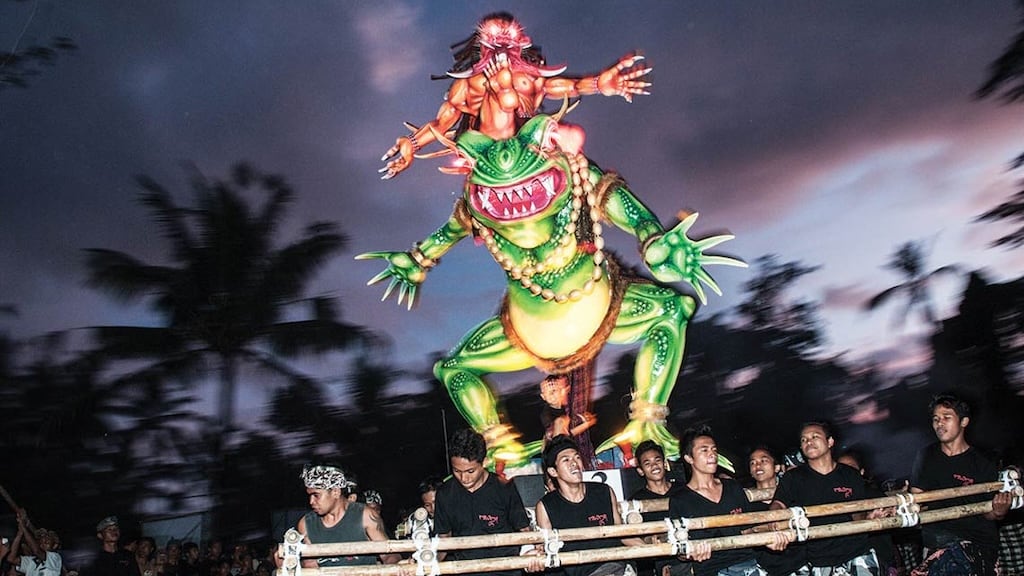The Day the World Stops: Nyepi, Bali's Sacred Silence
Nyepi, the Balinese Day of Silence, is perhaps one of the most unique and profound New Year celebrations in the world. Unlike the boisterous festivities that mark the turn of the year in most cultures, Nyepi transforms the entire island of Bali into a serene haven of introspection, fasting, and meditation. For 24 hours, from 6 AM to 6 AM the following day, all activity ceases: no lights are lit, no fires are kindled, no work is done, no travel is permitted, and no entertainment is sought.


The Balinese New Year in Indonesia is a deeply spiritual observance, a day when the island collectively "hides" from evil spirits, cleanses itself, and embarks on a journey of self-reflection. It's a powerful testament to the enduring Hindu philosophy that underpins Balinese culture, offering a rare glimpse into a world where silence speaks volumes.
Ancient Roots: The History of Saka New Year
The origins of Nyepi are deeply embedded in the Balinese Hindu calendar, specifically the Saka calendar, which dates back to 78 A.D. This ancient calendar system, introduced to Indonesia from South India around 465 A.D., governs the timing of many Balinese religious ceremonies and festivals. Nyepi marks the beginning of the Saka New Year, a time for spiritual cleansing and renewal. The philosophy behind Nyepi is rooted in the belief that by observing a day of complete silence and inactivity, the island becomes invisible to malevolent spirits. According to local folklore, these evil forces, having been driven away by the preceding noisy rituals, return to find Bali deserted, thus passing over the island and leaving it purified for the new year.
The observance of Nyepi is a powerful expression of the Hindu concept of Tri Hita Karana, which emphasizes harmony between humans, nature, and God. The day of silence is a time for self-purification, reflection, and a reconnection with one's inner self and the divine. It is a day to contemplate the past year, to set intentions for the new one, and to restore balance within oneself and with the universe. Despite its ancient origins, Nyepi remains a deeply relevant and respected tradition in modern Bali, a testament to the enduring strength of Balinese culture and its spiritual foundations.
A Six-Day Journey: Rituals Leading to Silence
The Balinese New Year is not just a single day of silence but a six-day observance, each with its own significant rituals that build up to the profound stillness of Nyepi.
1. Melasti Ritual (3-4 days before Nyepi): This purification ceremony sees thousands of Balinese Hindus, dressed in traditional white attire, marching in vibrant processions to the sea or other sacred water sources. They carry sacred objects from their temples, which are ceremonially cleansed in the ocean, symbolizing the purification of the universe and the removal of negative influences.
2. Bhuta Yajna Ritual & Ogoh-Ogoh Parade (Eve of Nyepi): The night before Nyepi is a dramatic contrast to the silence that follows. This is the time for the Bhuta Yajna ritual, aimed at vanquishing negative forces. The highlight is the "Ogoh-Ogoh" parade, where giant, intricately crafted effigies of demonic figures, representing evil spirits and negative human traits, are paraded through the streets. Accompanied by loud gamelan music, chanting, and fire, these parades are designed to scare away malevolent spirits. Many Ogoh-Ogoh are ceremonially burned after the parade, symbolizing the purification of the island from all evil.
3. Nyepi - The Day of Silence (24 hours): This is the core of the celebration. From 6 AM on Nyepi day until 6 AM the next morning, the entire island observes Catur Brata Penyepian, the Four Prohibitions:
- Amati Geni: No fire or light, including electricity.
- Amati Karya: No working or engaging in business activities.
- Amati Lelunganan: No traveling; roads are empty, and the airport is closed.
- Amati Lelanguan: No noisy festivities, entertainment, or pleasure. During this sacred period, Balinese Hindus dedicate themselves to prayer, fasting, meditation, and self-reflection. Even tourists are expected to respect these rules, remaining within their accommodations. Local security officers, known as Pecalang, patrol the streets to ensure compliance.
4. Ngembak Agni / Labuh Brata (Day after Nyepi): This day marks the official beginning of the Balinese New Year. The prohibitions are lifted, and families and friends visit each other to exchange forgiveness and renew relationships. A unique tradition in Denpasar is the Omed-Omedan, or "Kissing Ritual," where unmarried young people participate in a playful mass-kissing event, symbolizing fertility and community bonding.
The Profound Customs of Silence
The customs surrounding Nyepi are deeply spiritual and communal, reflecting the Balinese Hindu philosophy of life. The most striking custom is the universal observance of silence. This is not merely a quiet day; it is a profound spiritual practice. The absence of light, sound, and activity is believed to trick any lingering evil spirits into thinking the island is uninhabited, thus ensuring their departure. This collective act of stillness also allows for deep personal introspection and meditation, a vital component of spiritual growth.
The creation and parading of the Ogoh-Ogoh effigies are another powerful custom. These often grotesque and terrifying figures are not just artistic creations; they are physical manifestations of negative energies and evil spirits. The act of parading them with noise and chaos, followed by their ritual burning, is a symbolic exorcism, cleansing the island of all malevolent influences before the new year begins.
The role of the Pecalang, the traditional Balinese security guards, is also a unique custom. These local volunteers ensure that the rules of Nyepi are strictly adhered to, maintaining the sacred silence and order across the island. Their presence underscores the community's commitment to preserving the sanctity of this holy day. These customs collectively create an atmosphere of profound reverence and spiritual renewal, making Nyepi an unparalleled cultural experience.


What to Expect as a Visitor
Experiencing Nyepi as a visitor to Bali is a truly unique opportunity, but it requires careful planning and respect for local customs. The date of Nyepi varies each year, typically falling in March or April, so check the Balinese Saka calendar well in advance. During the 24-hour period of Nyepi, the entire island, including the international airport, is closed. This means no flights in or out, no cars or motorbikes on the roads, and all shops, restaurants, and public services are shut down.
Visitors are expected to remain within their hotel or resort premises for the entire 24 hours. While you can use your hotel's facilities, you must adhere to the rules of silence and minimal light. Curtains are often drawn, and outdoor activities are prohibited. It's a perfect day for quiet relaxation, reading, meditation, or enjoying your hotel's indoor amenities.
The days leading up to Nyepi, particularly the Ogoh-Ogoh parades on the eve of silence, are vibrant and exciting. These are excellent opportunities to witness the cultural richness of Bali. However, be prepared for crowds and traffic disruptions during these pre-Nyepi festivities. After Nyepi, the island slowly reawakens, and the atmosphere is one of renewed energy and celebration.
Conclusion
Nyepi, the Balinese Day of Silence, stands as a powerful testament to the profound spiritual depth and cultural resilience of Bali. It is a celebration that defies modern conventions, offering a rare and invaluable opportunity for collective introspection, purification, and renewal.
From the vibrant chaos of the Ogoh-Ogoh parades to the absolute stillness of Nyepi day, the entire observance is a meticulously orchestrated journey towards harmony and balance. The Balinese New Year in Indonesia is more than just a holiday; it is a sacred ritual, a communal meditation, and a powerful reminder of the importance of silence in a noisy world. To experience Nyepi is to witness the soul of Bali, a unique cultural phenomenon that leaves an indelible mark on all who encounter it.